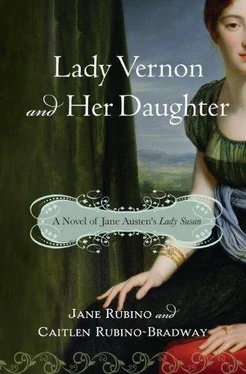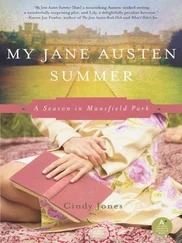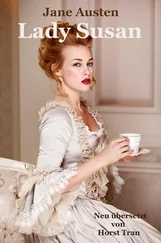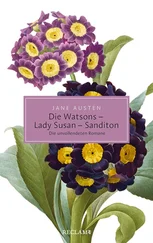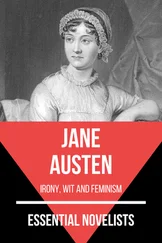Sir Frederick apologized to his bride for the property’s neglected state. “There is not a better library in four counties,” he declared, “but I am afraid that my honored father’s illness did not allow him to exert as far as he ought. But I assure you, my dear Susan, you shall have the liberty and funds to do as you like.”
Improvements were talked of—the kitchen garden and greenhouses were to be restored, the bedchambers would need considerable refurbishment, the arrangement of the rooms modified so as to take full advantage of the view offered by the hedgerows, the park, and Churchill Pond. Plans were resolved upon quickly, yet Sir Frederick was compelled to acknowledge that the aged steward, retained for so many years out of the late master’s benevolence and affection rather than the man’s capability, was quite unequal to the undertaking. Sir Frederick prevailed upon the steward to accept a comfortable cottage and a handsome sum of money with such great diplomacy that the old man believed he had been elevated in his station and yielded his post to a successor.
Mr. Deane had been given a very good character by John Martin’s friend Mr. Lewis deCourcy, and to his own accomplishments was added the advantage of a young daughter who was suited in every way to the post of Lady Vernon’s maid. Sir Frederick reviewed the number of improvements with Mr. Deane, and the two agreed that the best plan would be for the newlyweds to quit the house in order to give the carpenters and glaziers and upholsterers a free rein. They were at Churchill Manor, therefore, only long enough to be introduced to the neighbors and tenants, to give a half-dozen dinners, and for Sir Frederick to have some shooting before they consigned the property to Mr. Deane and repaired to London for the season.
Upon the death of Sir William Martin, at the end of the winter season, Sir Frederick and Lady Vernon, accompanied by her parents, traveled to Ealing Park, the Martin estate in Derbyshire. The family circle was so compatible, and of such comfort to Lady Martin and Sir James, that they were all urged to prolong their visit as long as they could. Sir Frederick readily consented; he was very fond of Lady Martin and her son, and his kindness, his steadiness, and his good humor were so pleasing to them that if Lady Martin ever did sigh, “Ah, if only she had married my James!” it was quickly followed by “But I daresay she could not have done much better.”
The Vernons did not return to Churchill Manor until December and found that owing to some delays in the procurement of materials and laborers (for many had been hired from the local population and could only be enlisted when they were not wanted on their own properties and farms), their improvements were but half-finished. They remained, therefore, only to give a few informal balls and dinners for the neighbors and to pass out shillings to the carol singers and pres ents of money and mince pies to the servants. Once the slice of twelfth cake was eaten, they again removed to London. An appeal from Lady Martin (who was, at her son’s insistence, to remain at Ealing Park) that she not be abandoned to James and his merry set of friends for the entire summer persuaded them to put off Churchill Manor once again. A visit to Mr. Lewis deCourcy at Bath was followed by a long stay in Derbyshire, where Sir James’s succession of balls, water parties, and picnics kept them well into the beginning of autumn.
It was in the middle of this visit that Sir Frederick received a letter from Mr. Deane, giving a favorable report of his progress and yet acknowledging that it would be many months more before the renovations were complete. Sir Frederick was content to give his steward all the time that was necessary; his lady, however, confided to him a very particular reason that they must be settled well before the date that Mr. Deane had proposed.
Sir Frederick’s delight in the prospect of an addition to their family was exceedingly great, and when their visit at Ealing Park was concluded, they repaired immediately to London, where they would remain until Lady Vernon was confined.
In the early part of spring, they welcomed into their family a daughter, christened Frederica Susannah, and the matter of a fixed residence now acquired some urgency.
“A child must be given the advantage of open space and fresh air,” Sir Frederick decided. “Churchill Manor will not be ready for another six months at least and—I am sure you will forgive me—I do not think that Ealing Park would suit, at least not for the coming summer.”
“Why may we not find another purchase?” suggested Lady Vernon. “We have fortune enough, and it will be something that we may settle upon Frederica, as she will have no claim upon Churchill Manor.”
“An excellent scheme!” declared Sir Frederick. “I will leave the choice entirely to you. Only let it have some fishing and some grouse or pheasant or woodcock to shoot, and whatever you like for yourself, and I will be content.”
Lady Vernon turned up an excellent property in Staffordshire. The manor house had been built within the last century, and both the grounds and the interior were laid out in a style that combined elegance with comfort and sense, while the extensive woods offered some of the finest sport in the country. The neighbors were said to be as agreeable a collection of folk as one would meet anywhere, with the nearest of them being the Clarkes, an affable couple who, despite dissimilar natures, were admired through all of Staffordshire as models of conjugal felicity. He was a quiet gentleman who enjoyed a morning stroll with his dogs and the remainder of the day among his books, and his wife was a lively woman who must spend part of every day visiting the neighbors or walking into town. There were also the Misses Clarke, two little girls a few years older than Frederica, who, Lady Vernon and Sir Frederick hoped, might be companions for their daughter.
Sir Frederick was so pleased with his lady’s choice that he left all of the bargaining to her as well. Lady Vernon did justice to his confidence and got a price that was three thousand less than he would have paid, and Sir Frederick rewarded her cleverness by settling the difference upon her.
The dwelling was christened Vernon Castle, and they were so delighted with it that it became their country home, and Churchill Manor was only opened for a fortnight every Christmas.
The Vernons were as enthusiastically courted as any couple will be when they are handsome, clever, and have plenty of money. Every picnic and shooting party at Vernon Castle added to Sir Frederick’s affability, and every reception at Portland Place added to his wife’s brilliance. Even little Frederica, who was not seen enough to give any material impression of her character or appearance, was said to be the prettiest and most well-behaved child who ever lived.
Alas, after ten years of universal goodwill, there came a decline in their fortunes, for which Sir Frederick’s brother bore no small responsibility.
Charles Vernon’s pride had sustained a blow when Susan Martin chose Frederick over himself, but he knew that the surest way to preserve Sir Frederick’s trust and liberality was to keep up a facade of family affection. When he was not imposing upon his brother’s hospitality, he was in the company of a very fast set who had a love of gaming and a reliance upon speculation rather than employment. Charles introduced some of these acquaintances to Sir Frederick, who found them so personable and their manners so engaging that he set down their impulsiveness and indiscretion to affability and allowed them to lure him into an ill-fated speculation. The result of this was a considerable financial loss. To Sir Frederick’s credit, he blamed no one but himself for the error of judgment, nor did he allow self-reproach to embitter his warm and openhearted nature. Charles Vernon was equally complacent; he had no conscience to provoke embarrassment or remorse. If he did experience any anxiety, it was only when he wondered whether his brother’s situation would affect his own invitations to shoot at Staffordshire and to dine at Portland Place.
Читать дальше
